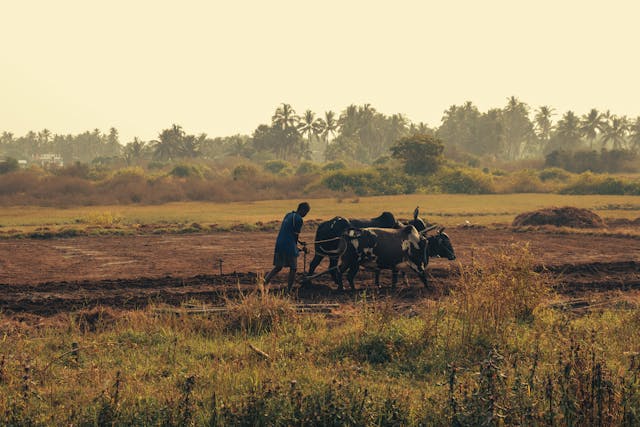The importance of a balanced diet in reducing hunger and malnutrition is widely acknowledged. Researchers have traditionally encouraged small farmers in low- and middle-income countries to cultivate diverse foods to combat these issues. However, a new study is beginning to challenge this long-standing advice to a certain degree. The study proposes that having good access to regional markets might be more crucial than smallholders’ efforts to grow various crops on their farms. This access could lead to better-functioning markets that increase the availability of diverse foods locally, benefiting the entire population. These findings are set to be published in the journal Nature Food.
An unbalanced diet can significantly harm one’s health, a situation that is especially prevalent in poorer countries. This issue is particularly acute among small-farm households, representing a significant portion of the world’s malnourished population. The standard recommendation has been for these farmers to grow a variety of foods themselves. However, questions arise regarding the effectiveness of this approach and whether there might be more beneficial alternatives.
Addressing these questions, researchers at the University of Bonn have uncovered extensive data through surveys conducted on nearly 90,000 households across Africa, including countries like Ethiopia, Malawi, Niger, Nigeria, Tanzania, and Uganda, from 2008 to 2022. These households were predominantly smallholders. “The surveys offered insights into the variety of crops cultivated and the number of animal species reared by these farmers,” explains Professor Matin Qaim from the Center for Development Research (ZEF) at the University of Bonn. “Additionally, the data shed light on the types of food consumed within these households.”
The findings revealed that although farmers who produced a wider range of crops and livestock tended to have more balanced diets, the impact was relatively minor. “Small-scale agricultural production in Africa is already quite diverse,” notes ZEF researcher Dr Thanh Tung Nguyen, who conducted the study alongside Professor Qaim. “It turns out that ensuring good access to local and regional markets is more significant than merely increasing the diversity of crops on each individual farm. These markets allow farmers to sell their surplus produce and buy foods that are otherwise missing from their diets.”
Moreover, the analysis of dietary patterns in these farm households indicated that markets are, more often than not, a more crucial source of nutritious food today than the farmers’ production. On average, the farmers’ food consumed only about one-third of their total food consumption. Proximity to local markets typically resulted in a diet richer in purchased foods, consistent across all surveyed countries. “Our research underscores the critical importance of access to local and regional markets for achieving a high-quality diet,” emphasizes Nguyen. However, suitable infrastructure remains lacking in many areas, with poor road conditions often prolonging travel times to markets and leading to spoilage or damage of products.
The study advocates shifting the focus from enhancing crop diversity on individual farms to improving infrastructure and market access. Over-diversifying an individual farmer’s crops could be counterproductive, as each crop has specific needs and requires particular expertise. “It’s more advantageous to concentrate on crops that thrive under local conditions and then sell any excess,” suggests Nguyen. Nevertheless, it is still worthwhile to diversify crops to a reasonable extent for both environmental benefits and to mitigate risks for farmers.
Professor Matin Qaim, also a member of the transdisciplinary research area “Sustainable Futures” and the PhenoRob Cluster of Excellence, concludes, “It is not essential for each small farm to produce all the food items necessary for a healthy diet by themselves. It suffices if a wide array of foods is grown regionally because then local households can buy diverse foods at markets.” This approach fosters a division of labour, enhancing dietary quality and contributing significantly to broader economic development.
More information: Thanh-Tung Nguyen et al, Local and regional food production diversity are positively associated with household dietary diversity in rural Africa, Nature Food. DOI: 10.1038/s43016-024-01096-6
Journal information: Nature Food Provided by University of Bonn








